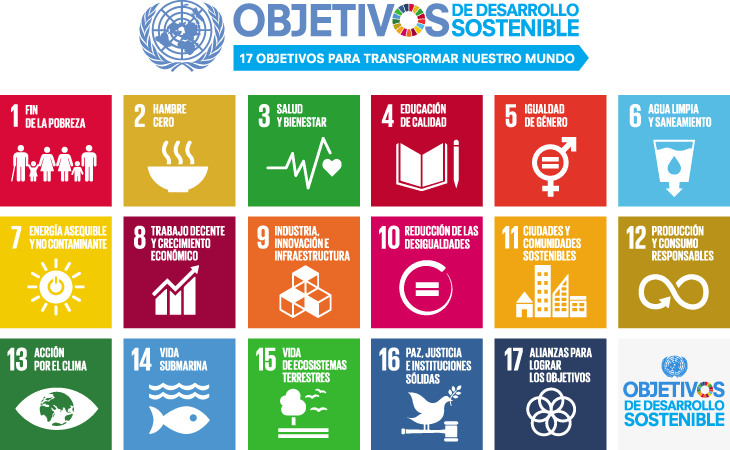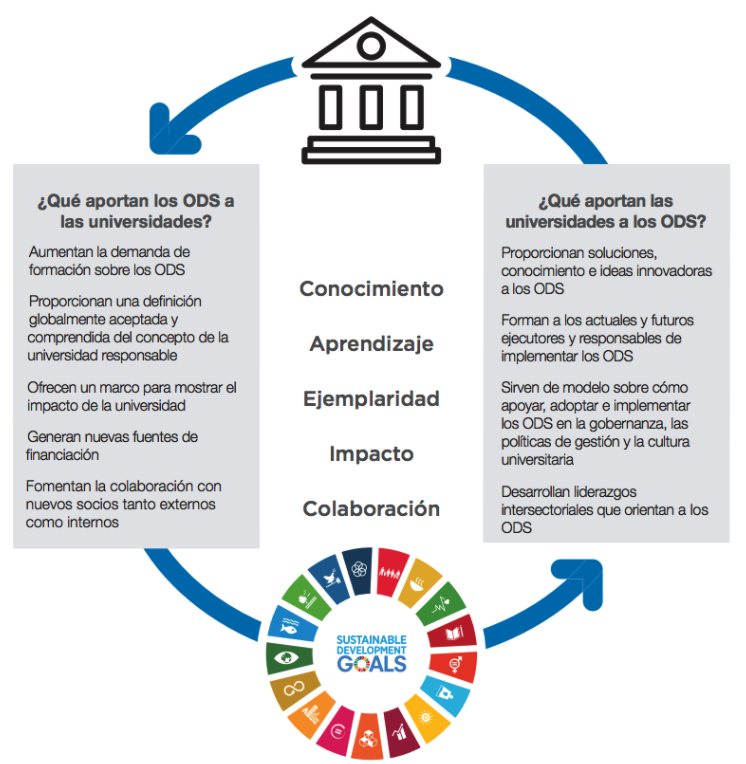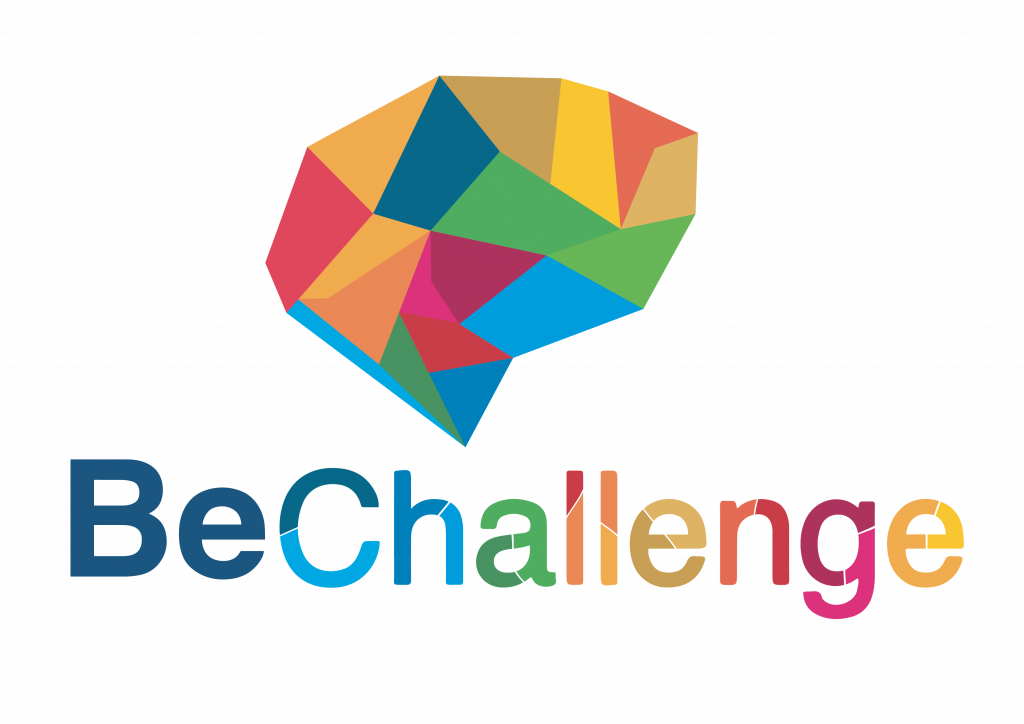How important are the SDGs?
In 2015, a historic agreement was reached in which world leaders agreed on the need to take action for the planet and its people and to set themselves on the path to a better future.

This is the origin of the document "Transforming our world: the 2030 Agenda for Sustainable Development", commonly referred to as "the 17 SDGs", these Sustainable Development Goals encompass a multitude of elements and sectors to focus on and support for improvement, and each of these goals in turn carries with it a series of tasks to improve the situation.
Carrying out these goals is not easy, they are very ambitious, and that is the reason why the agenda defines the goals as principles and aspirations, but does not define parameters, the fulfillment of the SDGs is not something that can be done by one person or one government alone, it is not an action that can be done in a day, not even in a year or even a decade, the fulfillment of the SDGs must to be a change from the base that spreads without control, each and every one of us has to collaborate.
Let's give an example, if we want to do something for SDG 15 "Life of Terrestrial Ecosystems", what can we do for it? Firstly, it may seem that this is a government task and we as citizens, we can not do much, nothing could be more untrue, the government is just another link in the chain to achieve this goal, it is useless for the government to establish an action plan to promote recycling and reduce pollution, and then as citizens we do not recycle at home or make an effort to reduce the consumption of plastics, or if universities and workplaces do not have the possibility to put your own cup of coffee or that the plastic stick does not come out to spin in the coffee machine. We could give many examples like these.
What if there was an element that could bring us together?
Universities have a privileged position within society, they are protagonists in the creation and dissemination of knowledge and drivers of innovation at all levels, thus universities have a key role to play in achieving the SDGs, transmitting the importance of this and benefiting from this commitment.
In this chart proposed by the Guide "How to get started with the SDGs in universities" proposed by SDSN Australian/Pacific we can see the benefits for universities of committing to the SDGs as well as all the potential they have to contribute to this fulfillment.

As we can see, universities have in their hands the knowledge and the foundations that will be transmitted to the next generations, if they begin to mobilize and involve youth from the grassroots, they can provide students with the means and skills necessary for the implementation of the SDGs, they can create opportunities and dialogue between governments and institutions and they can provide the necessary tools for research to researchers and companies to promote their implementation and their transdisciplinary and interdisciplinary study.
What can universities do for the SDGs?
What Universities can do by contributing to the SDGs is infinite, which is why we are going to divide it into four broad areas:
- Education: mobilizing and providing youth with the skills and tools necessary to achieve the SDGs.
- Research: Supporting businesses, community and students to deliver and validate solutions to SDG challenges
- Management and governance: institution-wide implementation of the principles of the SDGs
- Social leadership: promoting university engagement with SDG implementation and initiating and facilitating dialogue to help promote SDG-based policies and demonstrate university commitment to the SDGs
How can the university contribute to education?
- Empowering and mobilizing youth
- Provide extensive academic or vocational training to implement SDG solutions
- Create more opportunities for capacity building of students and professionals from developing countries to address SDG-related challenges
How can the university contribute to promote the SDGs through research?
- Encourage and promote the SDGs as a research topic within the university
- Support the full spectrum of research approaches needed to address the SDGs, including interdisciplinary and transdisciplinary research
- Support and encourage innovation for sustainable development solutions
- Actively support the national and local implementation of the SDGs
- Advocate for national support and coordination of research on the SDGs
- Support capacity building for emerging countries to develop and use SDG research
How can the university contribute to promoting the SDGs through management and governance?
- Analyze how the university's strategies, policies, plans and high-level information indicators align with the SDGs and identify which organizational units are relevant to each SDG.
- Identify and address any key gaps in the university's response across the SDGs.
- Incorporate the SDGs in the reports of the institutional structures of universities.
How can the university contribute to promote the SDGs through social leadership?
- Aligning university governance structures and operational policies with the SDGs
- Strengthening public commitment and participation to address the SDGs
- Initiating and facilitating cross-sectoral dialogue and action on SDG implementation
- Playing a leading role in policy development and promotion of sustainable development
- Demonstrate the importance of the university sector in the implementation of the SDGs
- Demonstrating the university sector's commitment to the SDGs
Here is a quick exercise:
EXERCICE
What is your university doing to promote the achievement of the SDGs?
What could you do tomorrow and you are not doing?
What could you do you think is important but requires more support and time?
After answer these questions, do the same exercise again, but this time, instead of asking yourself, What can the university do for...? ask yourself, What can I do for...? remember that for the SDGs to be achieved, each and every one of us will have to do our bit, and that any first step, however small, can be the trigger for great change.
What can BeChallenge do to help you introduce the SDGs at university?
BeChallenge has been designed from the beginning to develop social impact challenges and become the meeting point between universities, governments, companies and students, with the main objective of promoting and contributing to the evolution of the Sustainable Development Goals.
The platform offers a collaborative environment that favors and promotes communication in every corner, apart from the chat that allows communication with individuals, teams, mentors and teachers. Both the resources proposed by the challenge organizers, as well as the solutions proposed by the participants, are collaborative environments in themselves that favor communication and feedback to design together the best solutions that can meet the challenges proposed by the SDGs.
The platform offers multiple types of challenges to suit the needs of your institution, if you want to work deeply on the challenge you can make a Full challenge that allows the development of very elaborate solutions through various iterations of feedback and mentoring, if on the other hand you need an express version we offer a method where participants can propose their outputs in only 3 phases and start working in teams from the beginning.
As an institution and depending on the objectives you have set for the contribution to the SDGs, the need may arise to work on these challenges in different ways and at different levels, the challenges may be public or private,they may be designed to be developed within the institution itself or seek the collaboration of other institutions, external mentors or even design challenges between several teachers so that interdisciplinary and transdisciplinary challenges are carried out.
In BeChallenge all challenges can be aligned with the SDGs that the challenge works on, as well as you can automatically select the learning objectives that we propose derived from each of the SDGs. You can then analyze the SDGs that are being implemented in your institution through our analytics to see which SDGs are being worked on and which ones need to be focused on.
If you are interested in incorporating the SDGs in your university, please contact us and we will help you to incorporate them into your curricula, as we have done with institutions around the world".
Do not hesitate to contact us: hello@bechallenge.io
IIf you have found this article interesting, you can follow us on our social networks and suscribe to our NEWSLETTER by registering at BeChallenge.io
[DISPLAY_ULTIMATE_PLUS]
References
- SDSN Australia/Pacific (2017): Getting started with the SDGs in universities: A guide for universities, higher education institutions, and the academic sector. Australia, New Zealand and Pacific Edition. Sustainable Development Solutions Network – Australia/Pacific, Melbourne.
- Global Reporting Institute (GRI), United Nations Global Compact (UNGC) & World Business Council for Sustainable Development (WBCSD) 2015, The SDG Compass: The guide for business action on the SDGs, sdgcompass.org/wp-content/uploads/2015/12/019104_SDG_Compass_ Guide_2015.pdf.
- Sustainable Development Solutions Network (SDSN) 2015, Getting started with the SDGs: A guide for stakeholders, SDSN, New York, sdg.guide.
- United Nations (UN) General Assembly 2015, Transforming our world: The 2030 Agenda for Sustainable Development, A/RES/70/1 (21 October), viewed 3 August 2017, www.refworld.org/ docid/57b6e3e44.html.
- United Nations Educational, Scientific and Cultural Organization (UNESCO) 2014, Sustainable development begins with education, UNESCO, Paris, unesdoc.unesco.org/ images/0023/002305/230508e.pdf.
- UNESCO 2016, ‘Education for people and planet: Creating sustainable futures for all’, New Global Education Monitoring Report Series, UNESCO, Paris, en.unesco.org/gem-report/report/2016/ education-people-and-planet-creating-sustainable-futures-all.
- *Images taken from Freepik
If you liked it, share this post directly:


